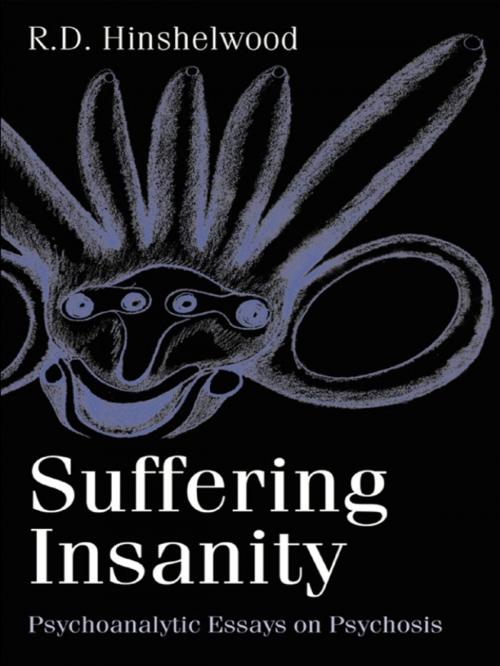Suffering Insanity
Psychoanalytic Essays on Psychosis
Nonfiction, Health & Well Being, Psychology, Mental Health| Author: | R. D. Hinshelwood | ISBN: | 9781135445492 |
| Publisher: | Taylor and Francis | Publication: | September 2, 2004 |
| Imprint: | Routledge | Language: | English |
| Author: | R. D. Hinshelwood |
| ISBN: | 9781135445492 |
| Publisher: | Taylor and Francis |
| Publication: | September 2, 2004 |
| Imprint: | Routledge |
| Language: | English |
When madness is intolerable for sufferers, how do professional carers remain sane? Psychiatric institutions have always been places of fear and awe. Madness impacts on family, friends and relatives, but also those who provide a caring environment, whether in large institutions of the past, or community care in the present. This book explores the effects of the psychotic patient's suffering on carers and the culture of psychiatric services. Suffering Insanity is arranged as three essays. The first concerns staff stress in psychiatric services, exploring how the impact of madness demands a personal resilience as well as careful professional support, which may not be forthcoming. The second essay attempts a systematic review of the nature of psychosis and the intolerable psychotic experience, which the patient attempts to evade, and which the carer must confront in the course of daily work. The third essay returns to the impact of psychosis on the psychiatric services, which frequently configure in ways which can have serious and harmful effects on the provision of care. In particular, service may succumb to an unfortunate schismatic process resulting in sterile conflict, and to an assertively scientific culture, which leads to an unwitting depersonalisation of patients.
Suffering Insanity makes a powerful argument for considering care in the psychiatric services as a whole system that includes staff as well as patients; all need attention and understanding in order to deliver care in as humane a way as possible. All those working in the psychiatric services, both in large and small agencies and institutions, will appreciate that closer examination of the actual psychology and interrelations of staff, as well as patients, is essential and urgent.
When madness is intolerable for sufferers, how do professional carers remain sane? Psychiatric institutions have always been places of fear and awe. Madness impacts on family, friends and relatives, but also those who provide a caring environment, whether in large institutions of the past, or community care in the present. This book explores the effects of the psychotic patient's suffering on carers and the culture of psychiatric services. Suffering Insanity is arranged as three essays. The first concerns staff stress in psychiatric services, exploring how the impact of madness demands a personal resilience as well as careful professional support, which may not be forthcoming. The second essay attempts a systematic review of the nature of psychosis and the intolerable psychotic experience, which the patient attempts to evade, and which the carer must confront in the course of daily work. The third essay returns to the impact of psychosis on the psychiatric services, which frequently configure in ways which can have serious and harmful effects on the provision of care. In particular, service may succumb to an unfortunate schismatic process resulting in sterile conflict, and to an assertively scientific culture, which leads to an unwitting depersonalisation of patients.
Suffering Insanity makes a powerful argument for considering care in the psychiatric services as a whole system that includes staff as well as patients; all need attention and understanding in order to deliver care in as humane a way as possible. All those working in the psychiatric services, both in large and small agencies and institutions, will appreciate that closer examination of the actual psychology and interrelations of staff, as well as patients, is essential and urgent.















